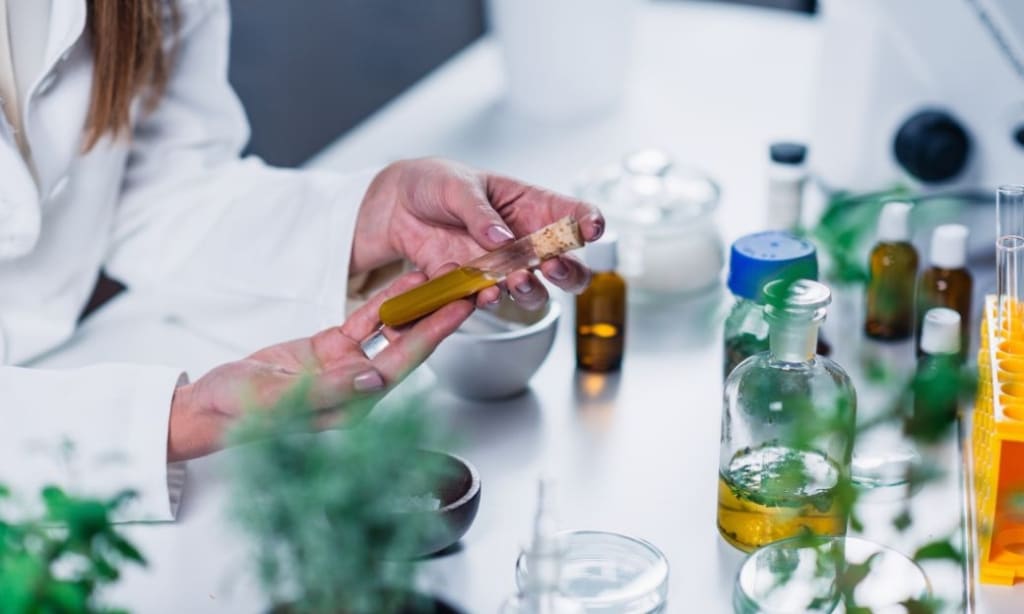If you’re undergoing chemotherapy with anthracycline drugs (such as Adriamycin/doxorubicin, daunorubicin, epirubicin, or idarubicin), protecting your heart health is crucial. These medications, while effective against cancer, can potentially cause heart problems that might not show up until years later. Regular heart check-ups, healthy lifestyle practices, and early treatment of heart problems may prevent serious damage. Here are the lifestyle practices/complementary therapies to consider:
Lifestyle practices
- Moving More: Aim for 150 minutes of aerobic activity per week. If you have an existing heart condition, please check with your physician or cardiac rehab program for specific guidance.
- Eating Well: Follow a heart-healthy diet
- Adopt a Mediterranean diet with1Alizadehasl A, Malekzadeh Moghani M et al. Cardioprotective Diet to Prevent Anthracycline-Induced Cardiotoxicity in Patients with Breast Cancer: A Randomized Open-Label Controlled Trial. Journal of Integrative and Complementary Medicine. 2024 Oct;30(10):995-1001; Toledo E, Salas-Salvadó J, Donat-Vargas C, et al. Mediterranean Diet and Invasive Breast Cancer Risk Among Women at High Cardiovascular Risk in the PREDIMED Trial: A Randomized Clinical Trial. Published correction appears in JAMA Internal Medicine. 2018 Dec 1;178(12):1731-1732; Papadaki A, Martínez-González MÁ, Alonso-Gómez A, et al. Mediterranean diet and risk of heart failure: results from the PREDIMED randomized controlled trial. Published correction appears in European Journal of Heart Failure. 2019 Mar;21(3):389-391.
- Plenty of vegetables (4-5 daily servings)
- Whole grains (3 daily servings)
- Healthy fats, like olive oil (2-6 daily servings)
- Fish (more than 2 weekly servings)
- Adopt a Mediterranean diet with1Alizadehasl A, Malekzadeh Moghani M et al. Cardioprotective Diet to Prevent Anthracycline-Induced Cardiotoxicity in Patients with Breast Cancer: A Randomized Open-Label Controlled Trial. Journal of Integrative and Complementary Medicine. 2024 Oct;30(10):995-1001; Toledo E, Salas-Salvadó J, Donat-Vargas C, et al. Mediterranean Diet and Invasive Breast Cancer Risk Among Women at High Cardiovascular Risk in the PREDIMED Trial: A Randomized Clinical Trial. Published correction appears in JAMA Internal Medicine. 2018 Dec 1;178(12):1731-1732; Papadaki A, Martínez-González MÁ, Alonso-Gómez A, et al. Mediterranean diet and risk of heart failure: results from the PREDIMED randomized controlled trial. Published correction appears in European Journal of Heart Failure. 2019 Mar;21(3):389-391.
- Maintain a healthy weight
- Quit smoking if you currently smoke
- Manage stress
- Use healthy stress management techniques to manage stress:
- See CancerChoices’ Managing Stress handbook
- Cognitive Behavioral Therapy (CBT) focused on stress management in people who have previously had a coronary heart disease event may reduce the chances of having another heart attack as well as lowering the risk of dying from any cause compared to people who get traditional care alone.2Gulliksson M, Burell G, Vessby B, Lundin L, Toss H, Svärdsudd K. Randomized controlled trial of cognitive behavioral therapy vs standard treatment to prevent recurrent cardiovascular events in patients with coronary heart disease: Secondary Prevention in Uppsala Primary Health Care project (SUPRIM). Archives of Internal Medicine. 2011;171(2):134-140.
- Avoid heart-stressing substances:3Gray B, Ingles J, Medi C, Driscoll T, Semsarian C. Cardiovascular Effects of Energy Drinks in Familial Long QT Syndrome: A Randomized Cross-Over Study. International Journal of Cardiology. 2017;231:150-154.
- Cocaine
- Diet pills
- Ephedra (ma huang)
- Performance-enhancing drugs
- Caffeinated energy drinks
- Use healthy stress management techniques to manage stress:
- Get baseline and follow-up tests of heart function: Your oncologist will order a baseline test of heart function (usually an echocardiogram). This testing should be repeated during treatment if you are at risk for heart problems. Repeat testing 4 and 10 years after treatment with doxorubicin.4Curigliano G, Cardinale D, Suter T, et al. Cardiovascular toxicity induced by chemotherapy, targeted agents and radiotherapy: ESMO Clinical Practice Guidelines. Annals of Oncology. 2012;23 Suppl 7:vii155-66. If you are a survivor of childhood cancer, do an echocardiogram every 1 to 5 years ongoing5 Denlinger CS, Sanft T, Baker KS, et al. Survivorship, Version 2.2018, NCCN Clinical Practice Guidelines in Oncology. Journal of the National Comprehensive Cancer Network. 2018;16(10):1216-1247. and during late-stage pregnancy.6Health Link. Keeping Your Heart Healthy After Childhood Cancer. Children’s Oncology Group. Version 6, October 2023. Viewed February 11, 2025.
If you are on herceptin, you can expect that your doctor will do echocardiogram testing every 3 months during treatment.7Dang CT, Yu AF, Jones LW, et al. Cardiac Surveillance Guidelines for Trastuzumab-Containing Therapy in Early-Stage Breast Cancer: Getting to the Heart of the Matter. Journal of Clinical Oncology. 2016;34(10):1030-1033.
To learn more about heart testing if you are on heart damaging treatments see our Research Takeaway: I received heart-damaging treatment. How often do I need an echocardiogram?
Natural support options
Important: Always consult with your healthcare team before starting any supplements, as they may not be safe for everyone.
Several natural therapies have shown promise in supporting heart health during anthracycline treatment:
- Milk Thistle: Has shown benefits in clinical trials, particularly in children receiving doxorubicin8Hagag AA, El Shehaby WA, El-Abasy AI, Mabrouk MM. Protective role of silymarin in early doxorubicin induced cardiac dysfunction in children with acute lymphoblastic leukemia. Infectious Disorders Drug Targets. 2019;19(2):133-140.
- Omega-3 Fatty Acids or Fish Oil: Has shown benefit in clinical trials in children receiving doxorubicin9Toledo E, Salas-Salvadó J et al. Mediterranean diet and invasive breast cancer risk among women at high cardiovascular risk in the PREDIMED trial: a randomized clinical trial. JAMA Internal Medicine. 2015 Nov;175(11):1752-1760; El Amrousy D, El-Afify D, Khedr R, Ibrahim AM. Omega 3 fatty acids can reduce early doxorubicin-induced cardiotoxicity in children with acute lymphoblastic leukemia. Pediatric Blood & Cancer. 2022 Jul;69(7):e29496; Papadaki A, Martínez-González MÁ et al. Mediterranean diet and risk of heart failure: results from the PREDIMED randomized controlled trial. European Journal of Heart Failure. 2017 Sep;19(9):1179-1185.
- Panax Ginseng: Has shown benefit at 1 gram/day in a clinical trial in adults receiving doxorubicin10Hamidian M, Foroughinia F, Haghighat S, Attar A, Haem E. Protective effects of Panax ginseng against doxorubicin-induced cardiac toxicity in patients with non-metastatic breast cancer: A randomized, double-blind, placebo-controlled clinical trial. Journal of Oncology Pharmacy Practice. 2023 Sep;29(6):1306-1316.
- L-carnitine: May be beneficial alongside doxorubicin, especially if you’re experiencing muscle weakness11DiNicolantonio J, Lavie C et al. L-carnitine in the secondary prevention of cardiovascular disease: systematic review and meta-analysis. Mayo Clinic Proceedings. 2013 Jun; 88(6): 544–551; Waldner R, Laschan C et al. Effects of doxorubicin-containing chemotherapy and a combination with L-carnitine on oxidative metabolism in patients with non-Hodgkin lymphoma. Journal of Cancer Research and Clinical Oncology. 2006 Feb; 132(2): 121–128; Hershman DL, Unger JM et al. Two-year trends of taxane-induced neuropathy in women enrolled in a randomized trial of acetyl-l-carnitine (SWOG s0715). Journal of the National Cancer Institute. 2018;110(6):669–676.
- CoQ10: May help preserve heart function during treatment12Iarussi D, Auricchio U et al. Protective effect of coenzyme Q10 on anthracyclines cardiotoxicity: control study in children with acute lymphoblastic leukemia and non-Hodgkin lymphoma. Molecular Aspects of Medicine. 1994;15 (Suppl):s207–s212; Takimoto M, Sakurai T et al. Protective effect of CoQ 10 administration on cardial toxicity in FAC therapy. [Article in Japanese]. Gan To Kagaku Ryoho. 1982 Jan;9(1):116–121; Okuma K, Furuta I, Ota K. Protective effect of coenzyme Q10 in cardiotoxicity induced by adriamycin. [Article in Japanese]. Gan To Kagaku Ryoho. 1984 Mar;11(3):502–508.
- Ginkgo: Some studies suggest it may help maintain normal heart function in adults receiving doxorubicin.13Yi SY, Nan KJ, Chen SJ. Effect of extract of Ginkgo biloba on doxorubicin-associated cardiotoxicity in patients with breast cancer. [Article in Chinese]. Zhongguo Zhong Xi Yi Jie He Za Zhi. 2008 Jan;28(1):68–70. Ginkgo is safe to combine with chemotherapy because it doesn’t affect medications metabolized by common drug metabolism enzymes14Markowitz JS, Donovan JL, Lindsay DeVane C, Sipkes L, Chavin KD. Multiple-dose administration of Ginkgo biloba did not affect cytochrome P-450 2D6 or 3A4 activity in normal volunteers. Journal of Clinical Psychopharmacology. 2003;23(6):576-581. and does not affect metabolism of tamoxifen, anastrozole, or letrozole.15Vardy J, Dhillon HM, Clarke SJ et al. Investigation of herb-drug interactions with ginkgo biloba in women receiving hormonal treatment for early breast cancer. Springerplus. 2013;2(1):126.
- L-arginine: Could help prevent certain heart-related symptoms (Note: Should not be used by those with recent heart attacks)16Skrypnyk I, Maslova G, Lymanets T, Gusachenko I. L-arginine is an effective medication for prevention of endothelial dysfunction, a predictor of anthracycLine cardiotoxicity in patients with acute leukemia. Experimental Oncology. 2017;39(4):308–311; Schulman S, Becker L et al. L-arginine therapy in acute myocardial infarction: the Vascular Interaction With Age in Myocardial Infarction (VINTAGE MI) randomized clinical trial. JAMA. 2006 Jan 4; 295(1): 58–64.
The importance of professional guidance
For personalized advice about natural therapies, consider consulting:
Key takeaway
Heart protection during anthracycline chemotherapy requires a comprehensive approach combining medical monitoring, lifestyle modifications, and natural therapies under professional guidance. By being proactive and working closely with your healthcare team, you can help minimize the risk of heart complications while effectively treating your cancer.
References


